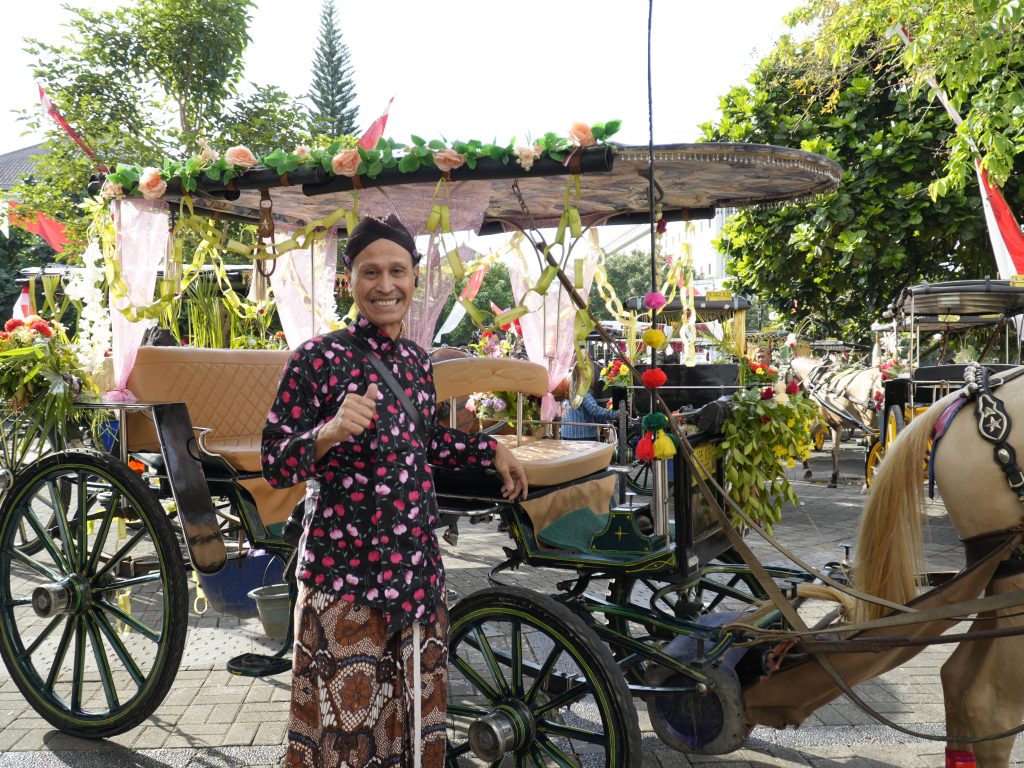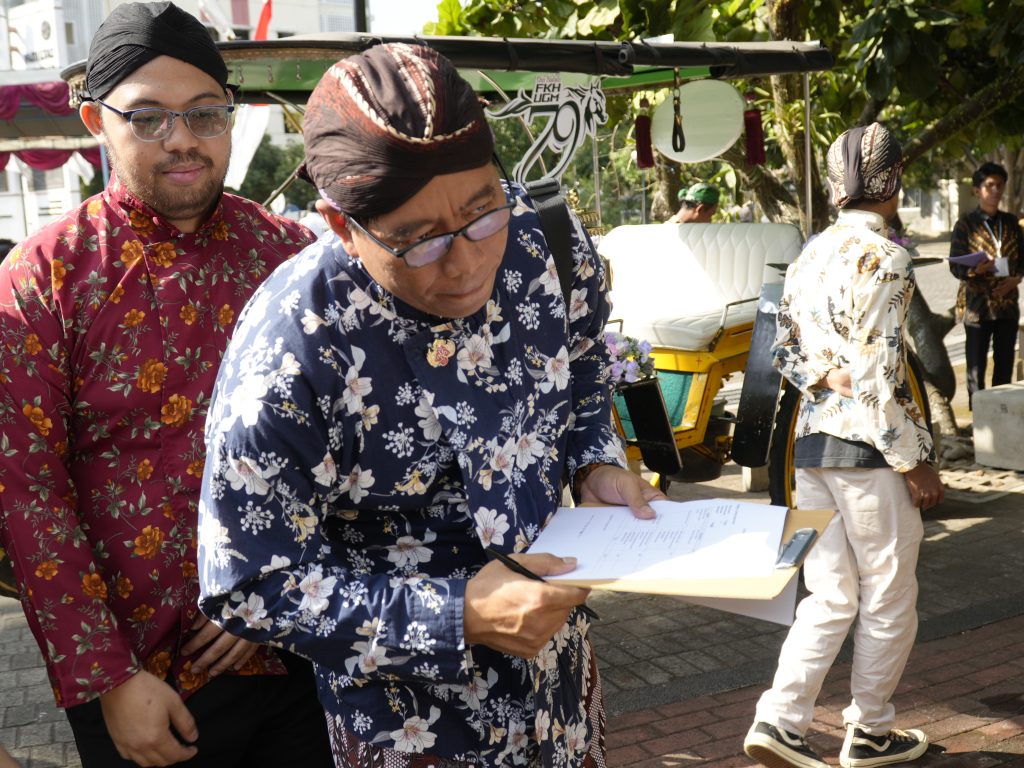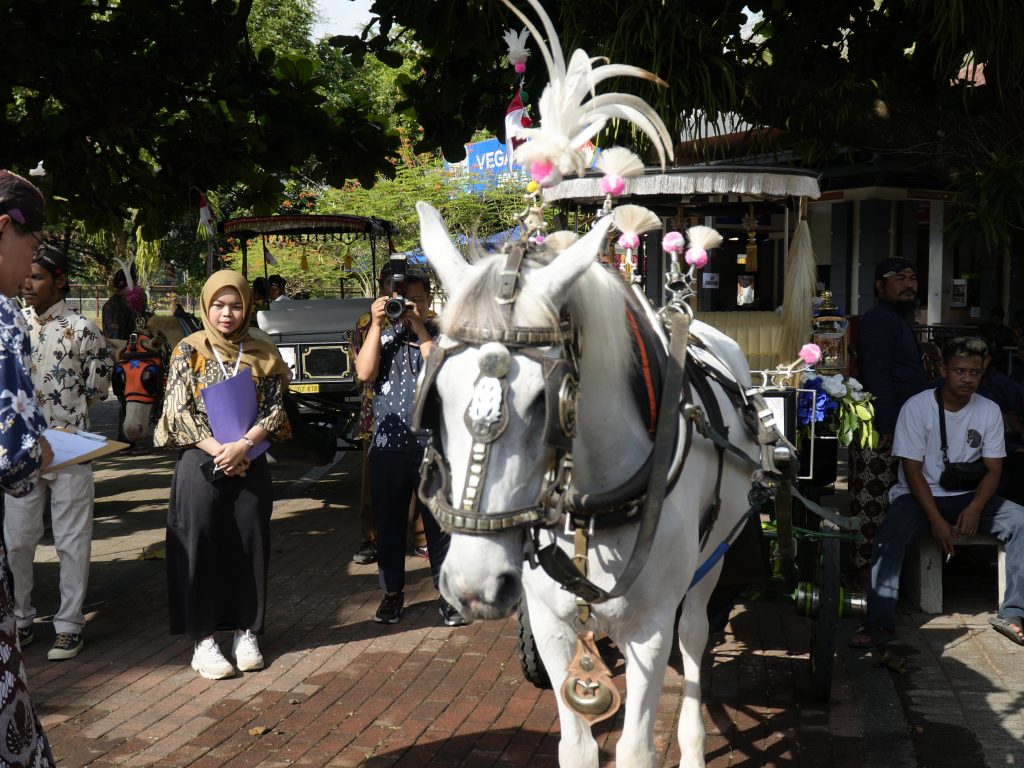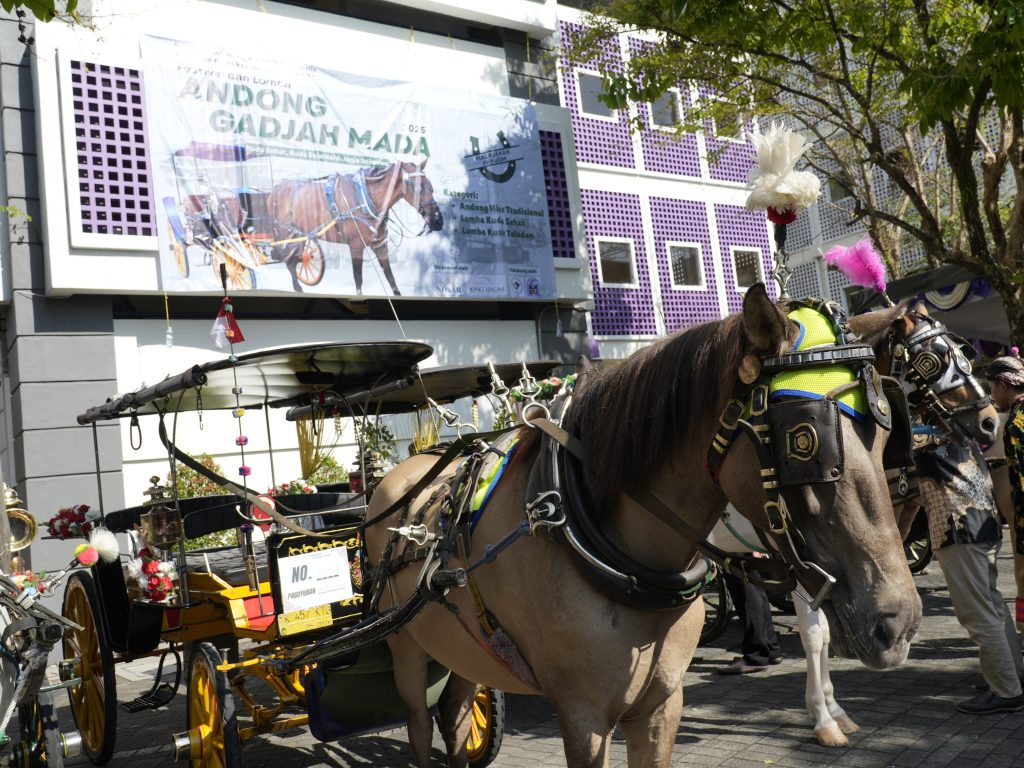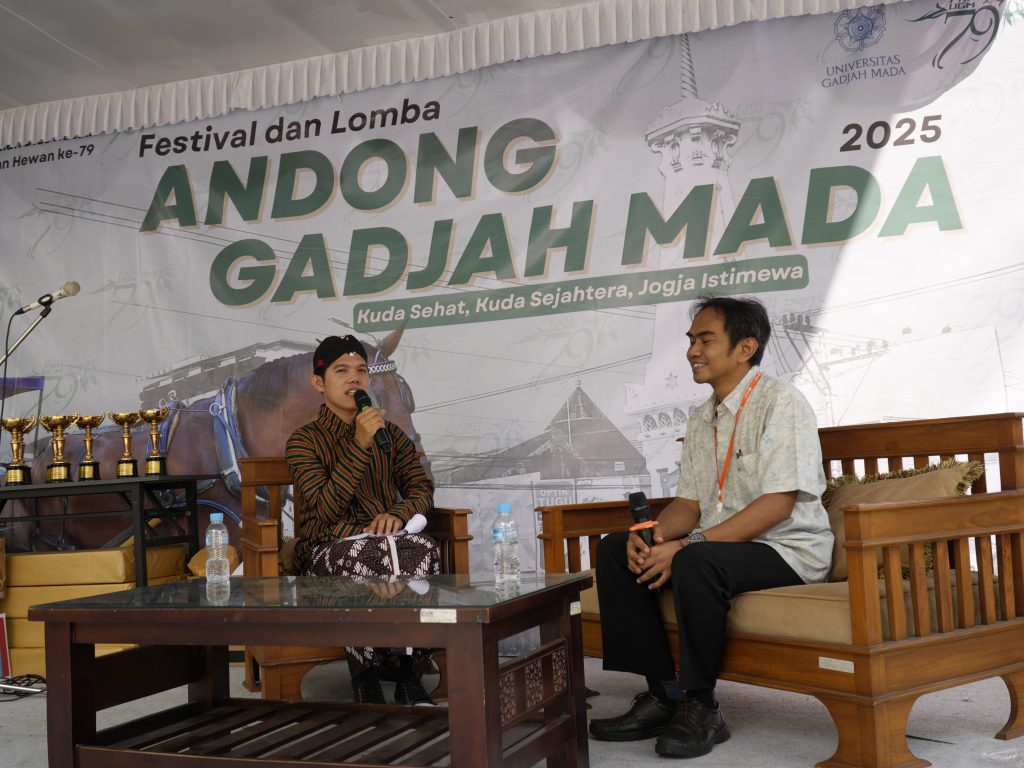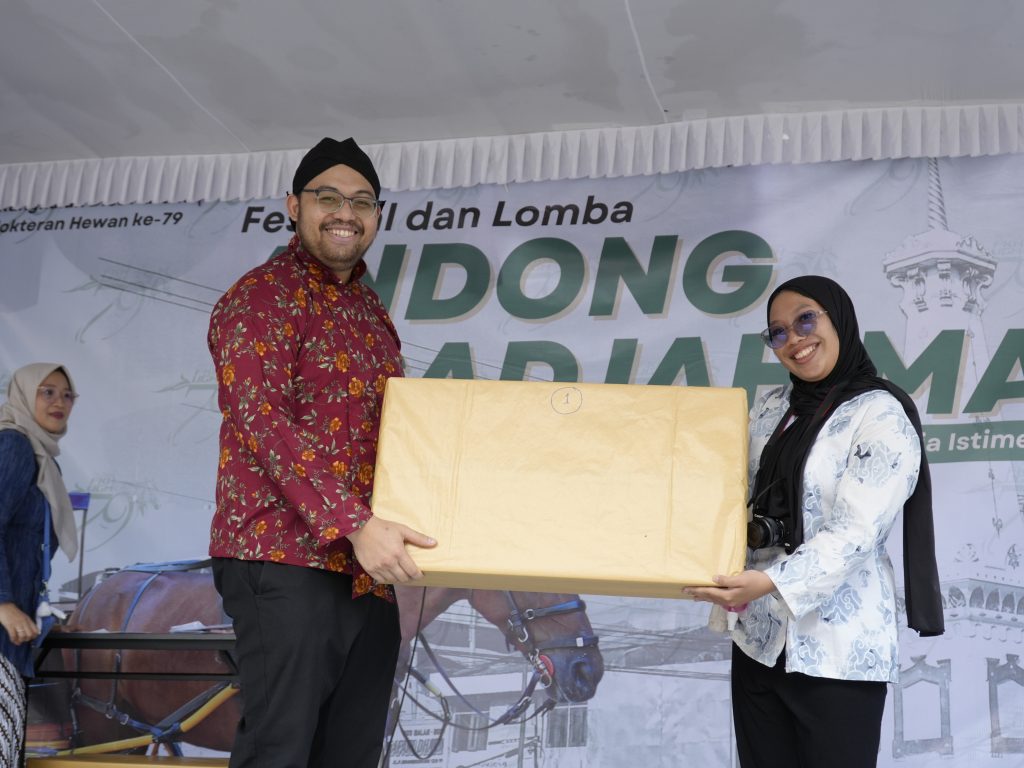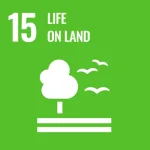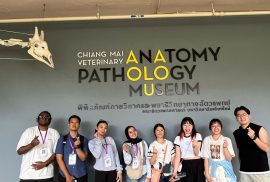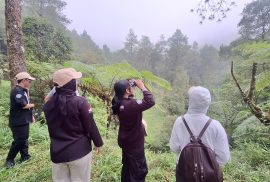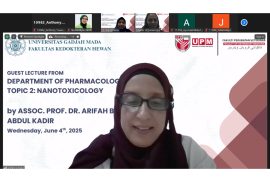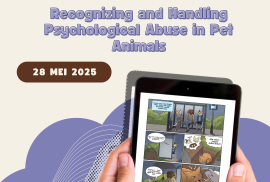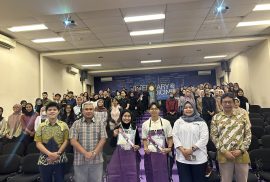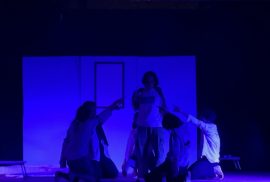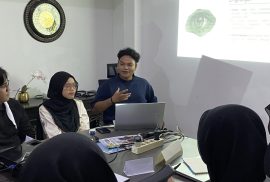The 79th Anniversary of the Faculty of Veterinary Medicine UGM Began with Yogyakarta Andong Festival
HighlightsNews Tuesday, 26 August 2025

On Thursday, August 14th, 2025, the 79th anniversary series of the Faculty of Veterinary Medicine, Universitas Gadjah Mada (FVM UGM) officially started. The series kicked off with a festival and Andong (horse-drawn carriage) competition. This event aims to preserve andongs as a means of transportation and as a tourist attraction, a unique characteristic of the Special Region of Yogyakarta.
In his remarks, the chairman of the 79th Anniversary Committee, Setyo Yudhanto, DVM., M.Sc., Ph.D., stated that the anniversary celebrations included a variety of activities, including an andong festival, a fun run, and an alumni gathering. He added that this was the first time the opening ceremony had been combined with an andong festival.
In the next speech, the Dean of the Faculty of Veterinary Medicine, Prof. Teguh Budipitojo, DVM., M.P., Ph.D., also stated that the andong festival was the first of its kind held at the Faculty of Veterinary Medicine. He therefore expressed his appreciation for the various parties who participated in the opening of the Faculty’s 79th Anniversary. “Thank you for your cooperation and assistance in the opening of the 79th Anniversary this morning.”
The opening ceremony featured a horse dance performance (Kuda Lumping), Andong parade, a talk show about workhorse welfare, door prizes, and Andong competition in several categories. The categories included the Traditional Decorative Andong Competition, the Healthy Horse Competition, the Exemplary Coachman Competition, and the Photography Competition. Thirteen Andong groups from across Yogyakarta participated in the competition. The horse-drawn carriages, decorated with distinctive regional ornaments, became a major draw for visitors. In addition to students and lecturers, the general public also attended and enjoyed the series of events that lasted until noon. Visitors were also able to shop at the MSME stands scattered around the grounds of the Faculty of Veterinary Medicine, UGM.
The opening of the 79th Anniversary of the Faculty of Veterinary Medicine, UGM, supports several values of the Sustainable Development Goals (SDGs), including goal 3 Good health and well-being, point 4 Quality Education, point 10 Reduced Inequality, point 11 Sustainable Cities and Communities, point 13 Life on Land, and point 17 Partnerships for the goals.



